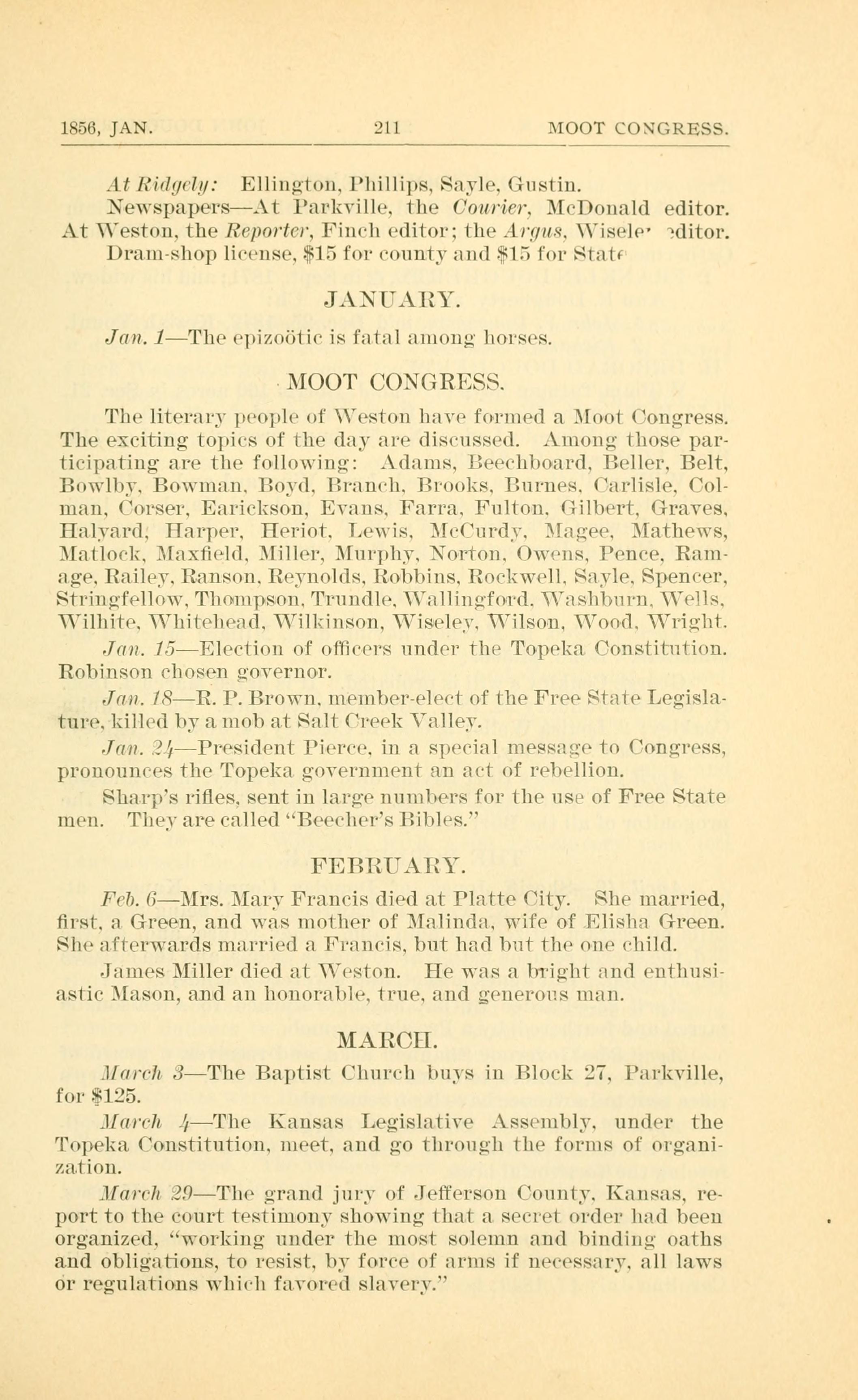Annals of Platte County, Missouri - Paxton
[previous page] [next page]

[previous page] [next page]
1856, JAN. 211 MOOT CONGRESS. At Riclgclg/. Ellington. Phillips, Sayle. Gustin. NewspapersAt Parkville. the Courier, McDonald editor. At Weston, the Reporter, Finch editor; the .lrr/us. \isele 3(1lt0I. Drain-shop license. $15 for county and $15 for State JANUARY. Jan. 1Tl1e epizootic is fatal among horses. - MOOT CONGRESS. The literary people of Yeston have formed a Moot Congress. The exciting topics of the day are discussed. Among those par- ticipating are the following: Adams. Beechboard. Peller. Belt. Bowlbv. Bowinan. Boyd. P1"Il(ll. Brooks. Burnes. (~arlisle. Col- man. Corser. Earickson. Evans. Farra. Fulton. Gilbert. Graves. Halyard, Harper, Heriot. Lewis. Mc(.urd. Magee. Mathews, Matlock. Maxeld. Miller, M111pl1". Norton. Owens, Pence. Rain- age. Railey. Ranson. Reynolds. Robbins. Rockwell. Sayle. Spencer. Striligfellow. Iho~1npson. lrundle. Vallingfo=rd. \asliburn. Wells. Wilhite. Wlhitehead. Wilkinson, Wiseley. Wilson. Wood. Wright. Jan. 15 Election of officers under the Topeka. Constitution. Robinson chosen governor. Jrm. I8R. P. Brown. meinber-elect of the Free State Legisla- ture. killed by a mob a.t Salt (reek Valley. Jrm. .?.&President Pierce. in a special message to Congress, pronounces the Topeka government an act of rebellion. Sharps ries. sent in large numbers for the use of Free State men. They are called Beechers Bibles. FEBRUARY. Feb. GMrs. Mary Francis died a.t Platte City. She married. first. a Green, and was niother of Malinda. wife of Elisha Green. She afterwards ma.rried a Francis. but had but the one child. James Miller died at W(-ston. He was a bright and enthusi- astic Mason, and an honorable. true. a11d generous man. MARCH. Jlarch 3The Baptist Church buvs in Block 27. Parkville, for $125. J[(uch ./,The Kansas Legislative Assenibly. under the Topeka Constitution. meet. and go through the forms of organi- zation. March 29The grand jury of Jefferson Countv. Kansas. re- port to the court testimony showing that a secret order had been organized, working under the most solemn and binding oaths and obligations, to resist. by force of arms if necessary. all laws or regulations which favored slaverv.